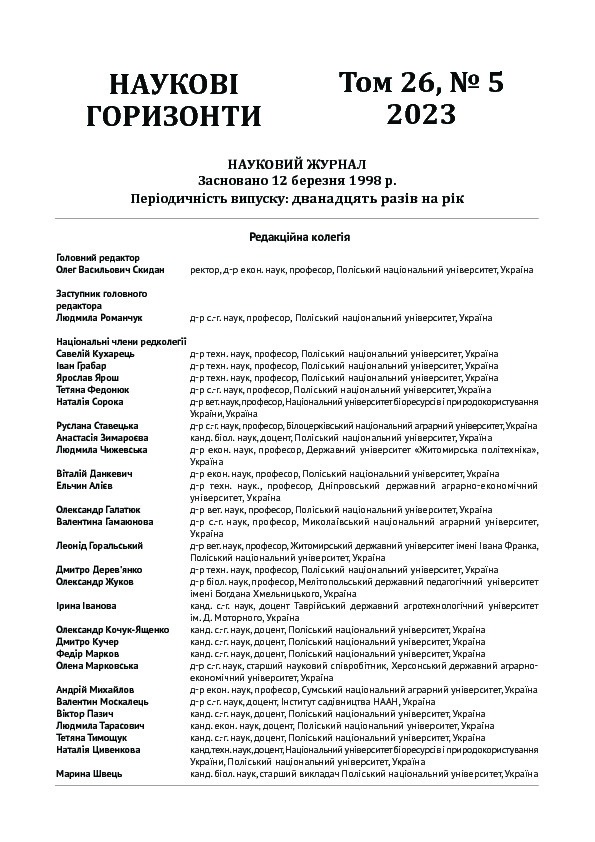id: 33650
Title: Bacterial blight of viburnum (Pseudomonas syringae pv. viburnum): Biological features, causes, and consequences of manifestation, methods of control in the system of decorative and fruit gardening
Authors: Moskalets T., Pеlеkhаta N., Svitelskyi M., Verheles P., Yakovenko R.
Keywords: species of the Viburnum L. genus; bacterial infection; features of the manifestation of bacterial disease; control measures
Date of publication: 2023-06-30 12:50:08
Last changes: 2023-06-30 12:50:08
Year of publication: 2023
Summary: Viburnum bacterial blight weakens the growth of Viburnum trees (bushes) and inhibits the physiological processes caused by the Pseudomonas syringae pv. viburni bacterium which survives in the affected stem tissue, plant remains, and soil. The purpose of the study was to examine the bioecological features of the manifestation of Pseudomonas syringae pv. viburni and development of measures to control bacterial leaf spotting in viburnum gardens. During the experiment, diagnostic methods were used to select plant leaves, identify, record, and analyse the affected leaves of viburnum plants by the Pseudomonas syringae pv. viburni bacterium. A method to avoid or reduce the risk of bacterial blights was developed. It was determined that various approaches can be used to prevent bacterial diseases in plants of the Viburnum L. genus, such as selecting more disease-resistant varieties, collecting and destroying fallen leaves and branches after pruning, and following agricultural techniques and gardening practices. For chemical control, copper-based bactericidal preparations, such as copper hydroxide or copper sulfate can be used, which are recommended for use in autumn and spring before budding. Performing these actions will help to prevent the manifestation of bacterial diseases in plants. It is proved that in the conditions of the Northern Forest-Steppe of Ukraine in the system of fruit gardening, it is advisable to grow high- and medium-resistant genotypes of Viburnum vulgaris of the Institute of Horticulture of the National Academy of Agrarian Sciences of Ukraine against bacterial leaf spotting. The practical value of the study lies in the fact that information about bacterial blight or bacterial spotting of viburnum leaves was expanded; it was proved that various species of the Viburnum L. genus differ in their susceptibility to Pseudomonas syringae pv. viburni bacterial damage; it is confirmed that the susceptibility of viburnum plants to this disease can be substantially reduced due to low-susceptible and resistant varieties and species of the Viburnum L. genus and timely technical and chemical measures.
URI: http://socrates.vsau.org/repository/getfile.php/33650.pdf
Publication type: Статті Scopus
Publication: Scientific Horizons. 2023. Vol. 26, № 5. P. 46-55. DOI: 10.48077/scihor5.2023.46
In the collections :
Published by: Адміністратор
File : 33650.pdf Size : 3904114 byte Format : Adobe PDF Access : For all

| |
|
|